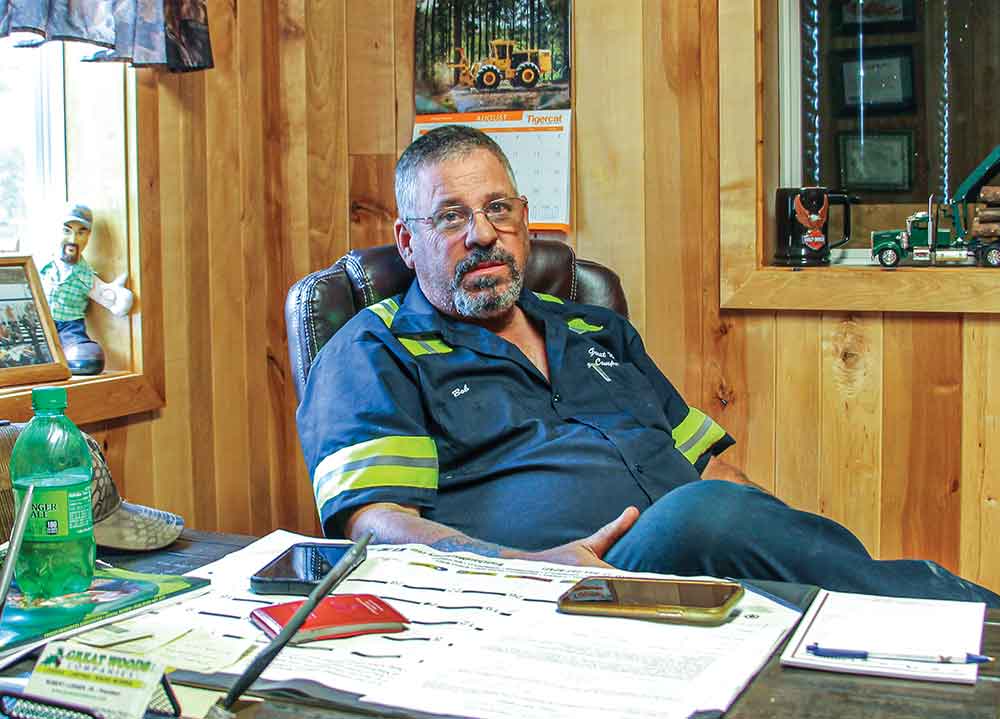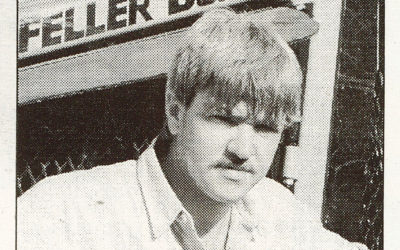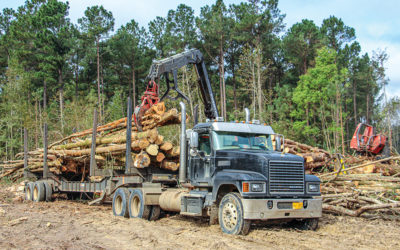Does Anyone Know?
Article by Jessica Johnson, Senior Editor, Timber Harvesting September/October 2022
One of the things I most look forward to each year, working on Timber Harvesting, is the Logging Business of the Year award. From reading all the nominations of worthy candidates, to being a member of the voting committee where we each present our case for our given candidate, to helping Managing Editor Dan Shell get the notification letter printed the right side up on TH letterhead (the Baby Boomer to Millennial joke writes itself here…)—I just love the process. Over the years, we’ve had big businesses and small ones, guys that contract cut and ones that serve as their own timber buyers. But one thing remains the same: They are all part of an aging workforce.
There have been countless articles and analyses on this topic. The TikTok has even exploded talking about how my generation, the Millennials are just sort of done with the hustle harder, work harder mentality of previous generations. So, when I sat down with the 2022 Timber Harvesting Logging Business of the Year Award winner, Robert Lussier, Jr. of South Carolina, himself a grandfather of seven, we naturally discussed the future—for the industry, for his family, heck, we sort of touched on the future of the world there for a minute. And it struck me like a bolt of lightning. He’s not a dinosaur. And he is certainly not the cliche that some discuss when they use headlines like “Quit Quitting Is The New It Trend.” He’s just a guy that has a good work ethic. Sure, the 12-hour days, six and sometimes seven days a week, mean he has had to make tremendous personal sacrifices. But it also means he has provided a good life for his family.
I mean, he provided a good enough life for his family that, when given an opportunity to do what most would be absolutely petrified to do—move their entire business, and life, 900 miles—he rose to the challenge and said why not? Yep, when Lussier was facing down an impossibly slow winter after a really challenging few years in the Northeast, he was offered a chance to fly South for the winter, just like the ducks he loves to hunt, and he jumped on it.

Taking that chance is what he told me he was most proud of, after his family, over the span of his 40-year career. He told me, “I don’t know how I did that when I think back on it. Somebody had their hand on my shoulder.” For the Lussier family, success in South Carolina was proof positive God exists. Lussier spoke with two of his crew members, got them on board, and they all came down in August, exactly 13 years ago almost to the day that I, representing Timber Harvesting, was on the job site doing the interview that would crown him Logging Business of the Year.
“We had nothing to lose and everything to gain. Seeing the opportunity that was here then, I wish I had done it 20 years earlier,” he says, looking back. Nothing to lose and everything to gain. How many times has anyone ever taken that chance, heck, even been given that chance? When you don’t give your work everything you’ve got, you don’t have opportunities like that. So, yea, maybe Millennials aren’t jumping at the chance to work themselves into the ground, but, as Lussier also told me, sometimes you don’t have to work the hardest to do the most production, you’ve just got to work the smartest. And Great Woods Co. certainly works smartly.
But Lussier also isn’t afraid to say what we’re all thinking—How are we going to attract the next generation in this industry? Is there just simply going to be a skip between the Baby Boomers/ Gen Xers (those that over work) and Millennials (those that don’t want to over work)? Are Millennials not going to be involved in the business? Is everything going to be on the backs of Gen Z, this next generation of kids that are seeing college isn’t the right path for everyone?
For Lussier, the key is the mills, recognizing that the logging force isn’t just a supplier that is a dime a dozen. Instead, the mills, and loggers, need to realize the relationship is more of a partnership dynamic. Neither can survive without the other. Even though that’s not how it has historically been, since, um, ever.
“But, it’s 10-15 years down the road before the next generation can start moving into the workforce. So we have to think about keeping us older guys healthy for the next 10-15 years, or the problem will just accelerate. We’re a trainwreck away from not having enough logging capacity to keep the mills going,” Lussier mused, before adding, “Who’s to say what happens then?”
I don’t know what the future holds. My crystal ball shattered a few years back, but I do know that with guys like Bob Lussier asking tough questions, maybe we might figure it out together.
Latest News
AOL Health Insurance Now Available In Oregon
Following approval from Oregon’s Division of Financial Regulation at the end of 2023, Associated Oregon Loggers is now offering logger health plans through the association. The new AOL Association Insurance Program, offered by a partnership between the AOL Health Benefits Trust and the insurance provider, Health Net of Oregon.
Equipment Innovator Paul Bell Dies At 66
Researchers in Colorado over a 10 year period have determined that forest thinning opens up canopies and benefits key tree pollinators by allowing more flower and shrub species that attract and sustain bee populations. Biologists from Colorado State and Utah State studied 15 thinned and 15 unthinned forest plots and found more species diversity and better overall forest health in the thinned tracts…
Southern Pulpwood Producers Should Watch Markets Closely
Southern Pulpwood Producers Should Watch Markets CloselyArticle by Dan Shell, Managing Editor, Timber Harvesting January/February 2024Going into the holidays after a fall of extremely dry weather...
WANT MORE CONTENT?
Spanning seven decades since its inception in 1952, Timber Harvesting highlights innovative and successful logging operations across the U.S. and around the world. Timber Harvesting also emphasizes new technology and provides the best marketing vehicle for the industry’s suppliers to reach the largest number of loggers in North America and beyond.
Call Us: 800.669.5613


